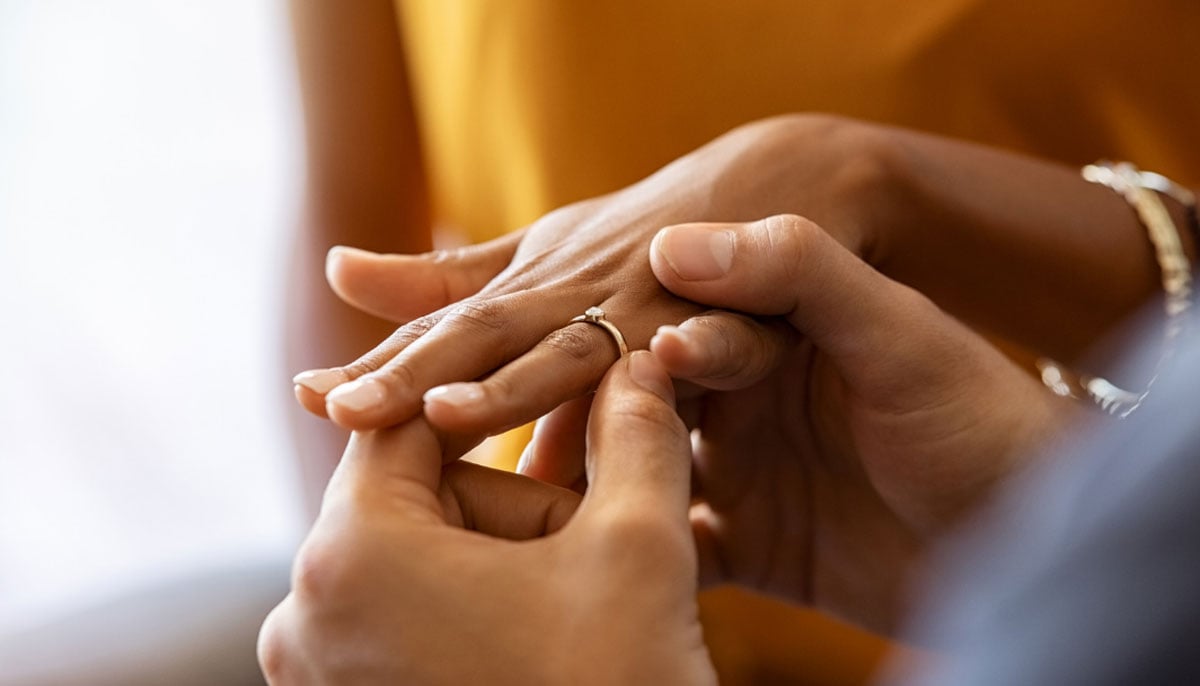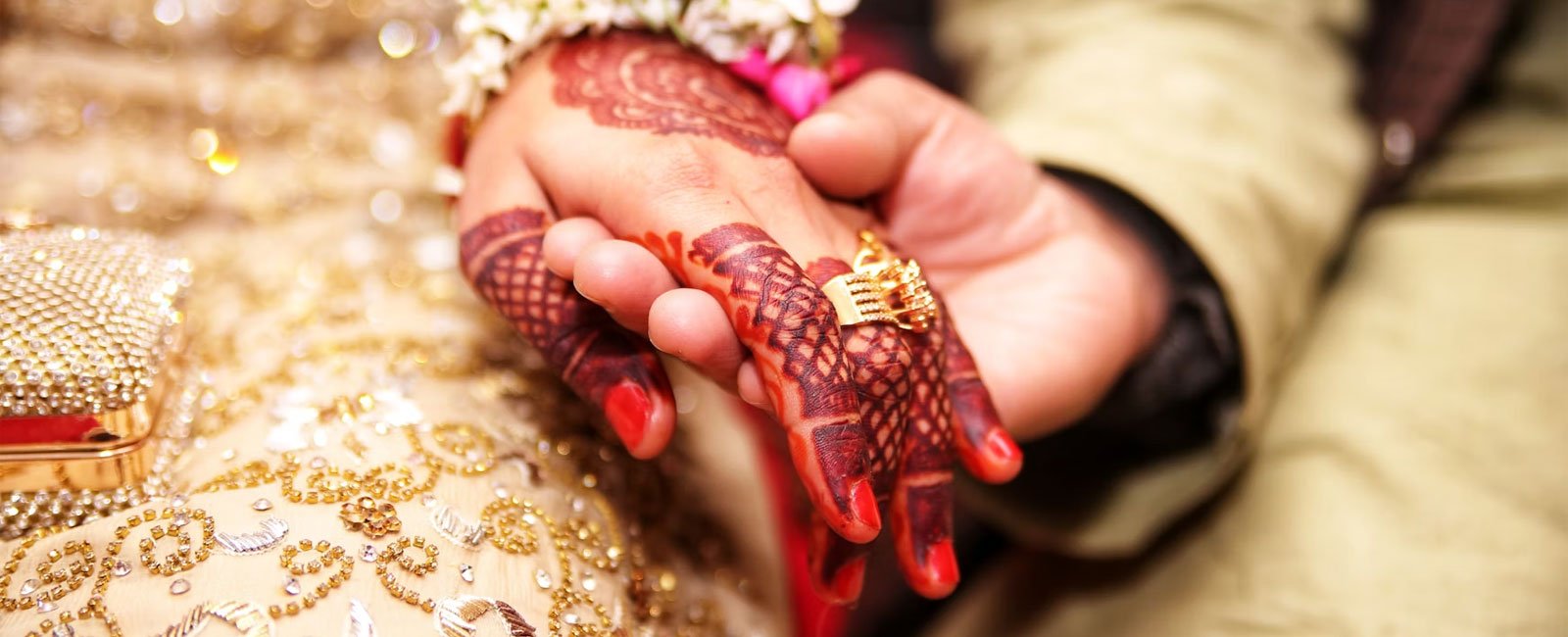Marriage: Once a beautiful institution, now a nightmare for women?

Farza Iqbal, a girl who dares to dream, becomes the voice of many unheard women in Pakistan as she challenges societal pressure to marry by the 'ideal age' of 25. While navigating through the problems of daily life in Karachi, she addresses the most favored topic at our desi gatherings: 'women and their marriages'.
Whether at someone's birthday party, bridal shower, wedding reception, or even a funeral, nosy individuals — including relatives and friends — never forget to casually mention marriage, leaving women feeling uncomfortable.
“Shaadi karlo warna umar nikal jayegi [Get married otherwise your age will pass]" is a very common phrase women hear on a daily basis. However, Farza believes that today's women no longer rush into marriage. They are self-sufficient enough to make ends meet and seek a partner who is "emotionally and intellectually stable".
In today's era, educated and financially independent women are aware of "toxic behaviours and red flags, leading to higher expectations for a healthy, respectful, and supportive partnership," said Farza in conversation with Geo.tv.
Sadly, in South-Asian households, a girl's life is divided into multiple phases, all inevitably culminating in marriage. As they come of age, women are pressured to align their dreams with marriage and their husbands. As they approach their twenties, the pressure to 'settle down' intensifies. God forbid a woman reaches 30 or older without marrying — she is often deemed a failure.

Despite our society's mentality which is deeply entrenched by patriarchy, young women today are slowly learning to stand their ground with a cautious delay in marriage observed rather commonly.
A plethora of reasons contribute to a woman’s decision to take her sweet time getting married, regardless of her age, societal pressure, and desires. Seeing the traumatic marital lives of their mothers firsthand is one such reason, while others include the rising cases of physical and emotional abuse, failed marriages in the country, and a woman’s financial stability, which plays a significant role in freeing them from the inherent guilt of disappointing their elders by making decisions for their own lives.
To get deeper insight into the conundrum of women and their diverging views on marriage, Geo.tv got in touch with Nida Kirmani, a Pakistani academic whose work focuses on women and gender.
According to her, the existing female population of our society is not willing to suffer in unhappy marriages in which they often end up losing their sense of independence and identity.
Nida, who has been unapologetically vocal about gender inequality, believes that "marriage is usually not something that's been liberating for women in our society". Hence, women are either not getting married or delaying their marriages for as long as possible.
Is feminism the root cause behind delayed and failed marriages?
When it comes to taking responsibility, a large section of our society blames feminism for the “rising demands of girls”, leading to delayed and unsuccessful marriages in Pakistan.
Farheen Shaheen, a clinical psychologist at the Hamdard University Hospital Karachi’s The Brain Clinic, dispelled the notion, dubbing it nothing but a “reductive perspective.”
“Feminism advocates for women's rights and equality which includes the right to choose when and whom to marry,” Farheen told Geo.tv.
Meanwhile, a matchmaker named Fehmida Asif ascribed the alarming rise in late and failed marriages to the absence of religious values among youth.
In a conversation with Geo.tv, she said that a woman was bound to make more compromises than a man to sustain a marriage. "In older times, mothers used to advise their daughters to save their marriages at any cost but nowadays mothers are poisoning the minds of their daughters and sadly, within a month or two they take khula [separation] over domestic issues."

Unfortunately, till today, only a woman is held accountable if she gets divorced or decides to get separated. The traditionalists of our society never care to know the core reasons behind any failed marriage as they believe it is the job of a woman to save her marriage.
However, a 25-year-old divorced girl from Karachi, who is raising her son as a single working mother, expressed despair over this mindset which only blamed women for a failed marriage.
It is high time that our society unlearns this backward mindset and understands that religion and ethical practices should not only be preached to women; men are also responsible for their behaviour and must learn to make compromises as well.
Not only that, Farheen detailed the negative impact on women's psychology after seeing one-sided compromises made by their mothers to protect their marriages.
During an in-depth conversation with Geo.tv, the medical expert said: "Women become apprehensive about marriage as imbalanced marital relationships can create a negative pattern. Since their mothers have been struggling with inequality, they become afraid of committing to such an institution. Such girls have anxiety issues.”
She added these women then question if they would be able to maintain their individuality in the marriage. "It does affect their desire to get married." Farheen continued that women, as a result, start setting higher standards of equality for their future relationships. "They rather wait to get married because they do not want to compromise on their values," she said.
It is pertinent to mention that in our country, a woman can be highly qualified, financially stable, mature, and well-behaved. However, much to its misfortune, all her achievements are sidelined if she is divorced or has not married at an age deemed appropriate by society's standards.
In South Asian countries, especially in Pakistan, the parents of unmarried girls also become easy targets for a judgmental segment of society, placing them under pressure to find ideal spouses for their daughters with the help of a matchmaker.

Nevertheless, the 'rishta culture', which should smooth the process of marriage, is now hindering it, and matchmaker Fehmida seconds this thought.
She highlighted the unjust demands made by the families of boys and girls, making the process of marriage extremely difficult.
Detailing her experience, Fehmida said, "The families of boys are not compromising on the physical traits of girls and on the other hand, the families of girls are looking for grooms who are money-making machines."
On the other hand, RB Sheikh, a 37-year-old government teacher, believes that 'rishta culture' in our society openly objectifies women.
She told Geo.tv that the concept of 'rishta culture' is the most "ridiculous thing" she has ever come across. During this process, girls are often judged for being "dark, short, skinny, and chubby," leading to the destruction of their self-esteem. This societal norm harms women's mental health.
Such experiences are a stark reminder that if anything, women are the real victims of gruelling marriage process, and it is high time society redirects its finger to the glaring factors that leave women fearful about marriage.
Marriage is undoubtedly an important and beautiful aspect of life, but it is not everything. At some point, both men and women wish to settle down and start a family. As firm believers in fate, society must realise that whatever is destined for us will find its way sooner or later.
There are a lot of people around us who get married at an early age; there are also people who struggle to find a suitable life partner; and then some have to deal with separation or divorce.
Every single person out there has their own stories and experiences. It’s all about the Almighty's timing; hence, undue pressure on both men and women, as well as their parents, is arduous at best and toxic at worst, especially when it is not within our control.
Areeba Khan is a staffer at Geo.tv
Header and thumbnail image via Canva




